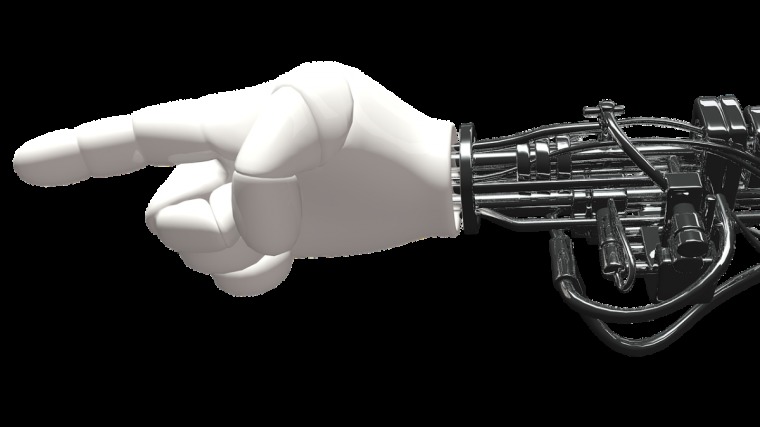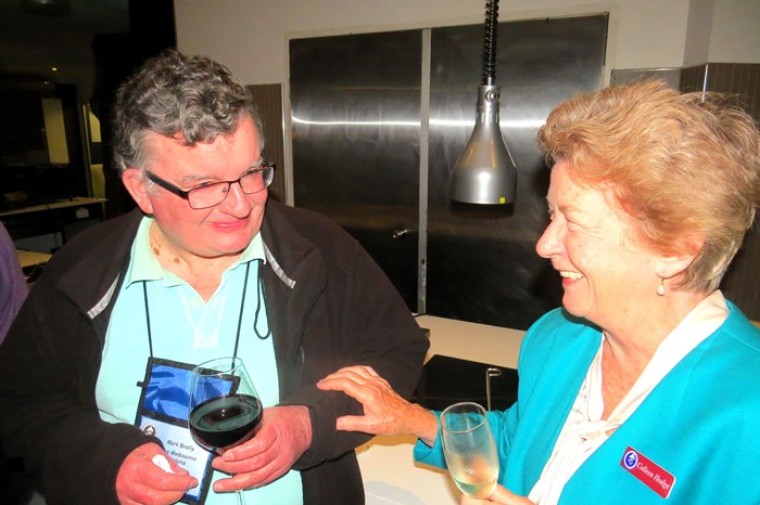

We're in the middle of a time that has never yet been seen before and a future we don't know how will play out. 3D printers will allow people to print from home at a fraction of current costs, altering and disrupting manufacturing industries; robots are on their way with the potential to replace large sections of low-end, manual labour; and automation technology is removing what used to be the roles of large numbers of administrators and service operators.
As Ed Rensi, an ex-McDonald's CEO said, "it's cheaper to buy a $35,000 robotic arm than it is to hire an employee who's inefficient making $15 an hour bagging french fries" and could lead to "job loss like you could not believe".
Oxford University and Deloitte believe that up to 35% of jobs are at risk of being taken over by automation in the next 20 years. I don't think we are preparing ourselves as a society for the fallout that will ensue.
The truth is that capitalisation and globalisation have allowed companies to scale their profits to levels that was not viably possible a few centuries ago, and the technology that is on its way has the ability to cut some of the most expensive and risky elements of business out: the people.
Unfortunately, the effects are already being felt.
When you look at the Arab Spring, the crisis in Greece and the millions of people who are voting for an unqualified candidate in Donald Trump, you see people who are deeply frustrated with the way things are and where they're heading. People who want their voices heard.
The problem is that robots with a profit drive don't listen (nor will Donald Trump).
However, what appears to be a looming global problem might actually be a massive opportunity for the Church. The good news is that we have the ability to not just be a voice in the midst of despair and hopelessness, but also to be the hands and feet that can bring people out of such situations. These are slivers of hope that we should take note of and continue.
Muhammad Yunus
For the last ten years, 2006 Nobel Peace Laureate Muhammad Yunus has been talking about establishing businesses that operate with a driving motive other than profit. He has been stirring up organisations to care about people and the environment, and embrace a new way of measuring sustainable success in the form of social businesses.
These are enterprises that put social issues as a first measure of performance, while still being financially sustainable. For this to succeed there need to be people who are willing to create these businesses for the good of society, and to care about the gaps that capitalisation and corporations have created.
And this is already happening. Social businesses are popping up in most countries. Their role in the future is going to be a significant one.
Plus, if you ask people who live in countries where the Salvation Army exists, they know them to be people who perform incredible work. The Salvation Army has gained a reputation for being salt and light in communities, with unwavering integrity and commitment. Even though "the Sallies" have the strongest branding in this regard, there are many selfless people and organisations which have chosen to stand alongside people suffering from homelessness, addiction and poverty. Communities know and respect them for it.
Light from a distant hill
What this shows us is that the Church, as an entity, can be the city on a hill as Jesus described; when it flips the measurements of success on its head and starts to seize the future to improve the lives of people. At the moment the Salvation Army and others are carrying the baton for addressing the destructive fall-out of externalities like poverty, joblessness and food shortages. But if the advancement of technology is anything to go by, the need for groups to be creating social businesses and carrying this baton further into job creation is only going to increase.
Wouldn't it be incredible to know that as a global organisation the Church was able to provide job relief and empowerment to potentially tens of thousands of people who will be affected by the impending turbulence?

Furthermore, in a counter to the ex-CEO of McDonalds, the current CEO of the restaurant chain said there will always be the need for "an important human element"—an area the Church has traditionally been strong in. We, as a people, will be the ones who will decide what we intentionally create for others, and whether we start to dictate the course of job creation or have it dictated to us.
Just watch this space to see if that group is going to be led by those wanting to be a light on the hill, or whether that mantle will be passed on to another group of people.
Matt Browning is actually an optimist—and is currently setting up a social business for youth unemployment in Rotorua, New Zealand.
Matt Browning's previous articles may be viewed at www.pressserviceinternational.org/matt-browning.html